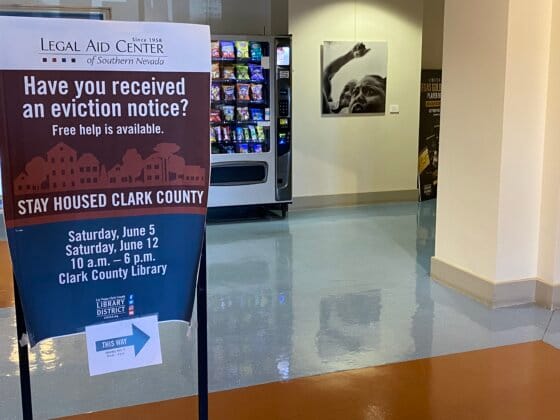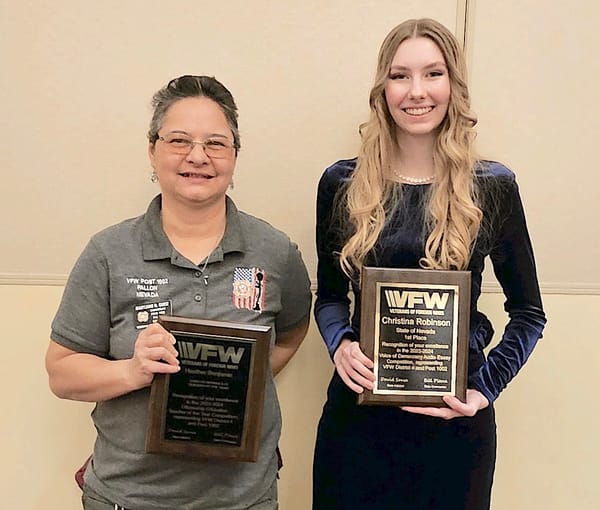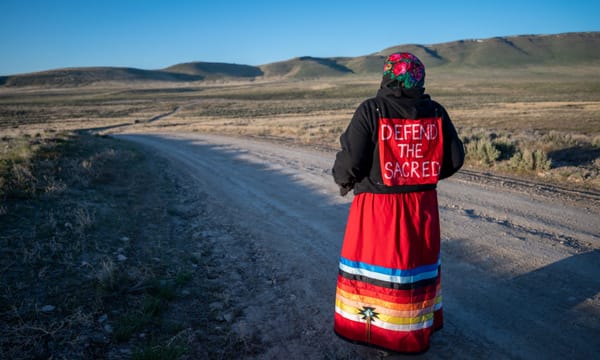As eviction moratorium eases, overwhelmed renters turn to nonprofit for legal help

By Michael Lyle
This story was originally published by Nevada Current.
LAS VEGAS–After six years of renting their home, Angelica Apodaca and Jose Erbella were given a 30-day eviction notice this month after learning the owner had sold the property. It was followed up by a seven-day notice for unpaid rent.
Parish Packer, who fell behind rent by nearly $4,000 while she was searching for work, received a seven-day notice at the beginning of the month.
After his pay was unexpectedly cut, Andrew Irvine was $400 short on rent and given notice to pay or quit.
Facing uncertainty and fearing the prospect of homelessness, they were among the renters who sought help from the Legal Aid Center of Southern Nevada Saturday.
Nevada’s eviction moratorium lifted June 1 and many landlords have resumed filing notices for nonpayment of rent.
“A landlord can still file an eviction, but they can’t lock you out,” said Jim Berchtold, the directing attorney of the Consumer Rights Project at Legal Aid Center of Southern Nevada. “But if you don’t file an answer, you’re going to end up evicted.”
Nevada’s summary eviction process, which automatically grants an eviction without a court hearing if the tenant does nothing, means people have to file an answer to avoid being locked out.
The first week following the end of the moratorium, Berchtold said there was still confusion around what landlords could and couldn’t do.
The Centers for Disease Control and Prevention emergency order prevents landlords from locking out most tenants who submit their declarations until July 1 — it doesn’t apply to nuisance-based evictions. Assembly Bill 486, which was signed into law June 4, also pauses an eviction when tenants have applied for rental assistance.
Eviction notices, filled with fine print and large legal words, can be intimidating to the average person, which is why Legal Aid has been hosting events in the community to provide direct assistance.
As some of the confusion wears off, Berchtold said Legal Aid is seeing “an uptick in nonpayment notices and no cause notices.”
Over two weekends, the nonprofit helped 110 households file answers, elect mediation and learn about rental assistance such as the CARES Housing Assistance Program (CHAP) through the county, which directs federal relief dollars toward rental and utility payments.
CHAP has consistently been backlogged.
At its first popup clinic, held at Whitney Library and Clark County Library, 37 households total sought assistance at both locations.
The second event saw 39 households helped at Clark County and another 34 receiving assistance at the West Las Vegas library.
Most tenants, Berchtold said, don’t know all the steps they need to take to avoid being locked out, which includes responding to all eviction notices.
“We talked to a woman who got an eviction notice and went to talk to her landlord and give a partial payment,” Berchtold said. “The landlord told her not to worry. But that’s the exact situation where someone gets evicted. We’re hearing cases where landlords say, ‘You don’t need to do anything.’ That’s why these events are important. This is how tenants protect themselves.”
Packer found herself in a similar situation.
She owed close to $4,000 and wasn’t too surprised when she received a seven-day notice from her property manager.
“I sat down with the property manager and worked out a payment plan of $500 every two weeks,” she said. “But $1,000 a month is really steep for me, even being newly employed.”
She didn’t realize she needed to file an answer until she sat down with Legal Aid Saturday.
“They have set my mind at ease,” she said.
Packer moved to Southern Nevada three days before Gov. Steve Sisolak declared a state of emergency and shut down businesses to prevent the spread of Covid-19.
She found the cheapest and quickest apartment she could, paying $700 a month.
“I just didn’t want to be homeless during Covid,” she said.
For the last year, she has lived without furniture in her one-bedroom apartment.
“It’s just my pots and pans, clothes and me,” she said. “I’ve been careful about not accumulating more bills.”
She was able to find a temporary job through Safe Nest last summer, but her contract ended in February and she was laid off. Packer was only recently able to find another job working at Salvation Army.
“I am employed now, but there was a gap of time when I wasn’t. Now I have to play catch up,” she said. “I fell behind on rent. I fell behind on the light bills. I fell behind on my car payment. I fell behind on everything.”
Packer didn’t realize she could apply for CHAP until after she set up the payment plan. Her landlord, she said, has been reluctant to renegotiate the repayment as her application is pending.
Now that she has filed a response to her notice and has applied for rental assistance through CHAP — her application was submitted June 11 and could take a month or two, if not longer, to process — she is hoping to get her repayment cut to $250 every other week while she waits.
If approved, Packer knows she will be in a better place financially and can escape the debt she’s accumulated over the past few months.
“It would be a huge weight lifted,” she said. “It would be a smoother process for me to get back on my feet, to budget and make sure my bills are paid on time. And maybe I could get a bed too.”
Irvine didn’t think an eviction notice would come so quickly, and even tried to warn his landlord he would be short to avoid any issues. But the seven-day notice arrived all the same.
“I figured it would at least be 30 days if it came,” he said.
He has been employed as a cashier at a gas station making $9.25 for the last six months and hadn’t had trouble making rent. Then last month, his hours were unexpectedly cut.
“When I went to get my check, it was barely enough to pay two bills,” Irvine said.
He immediately fell behind on his $725 rent, about $400 short, as well as other bills. He knows once he starts his new job in the next week, which pays $15 an hour, he will be able to catch up.
By filing a response on Saturday, he hoped he could buy a little more time to pay back his unpaid amount.
Not everyone who showed up Saturday thinks they’ll be able to stay in their place.
Apodaca and Erbella, whose household includes their daughter and two grandchildren, came Saturday morning hoping Legal Aid could buy them a little more time while they search for another place to live.
“We don’t want to stay,” Apodaca said. “We are just trying to buy some more time so we can find somewhere to live. If not, we are going to be living in our van.”
The couple has had persistent issues with their landlord over the six years they lived there. But it was a place to live, so they tried not to complain.
They knew from the start of the pandemic things would get contentious.
Erbella, who worked at Aria for 11 years doing convention set up, was laid off at the start of the pandemic. He was able to collect unemployment. It didn’t prevent the family from falling behind.
For the first time in their lives, they applied for the Supplemental Nutrition Assistance Program, often referred to as food stamps, and began to visit food pantries.
The couple, who pays $1,400 a month in rent, also owes $4,000 to their landlord. Thinking they were doing the right thing, they sought assistance through CHAP.
“It took us two months to get approved and then (the landlord) refused the payment,” Apodaca said. “Why would you refuse the payment if you want your money?”
The couple learned at the beginning of the month the property was sold. They weren’t given any warning prior to the 30-day eviction notice.
The search for a new place to live has been difficult.
“We keep applying and everyone tells us they’re completely full,” she said. “You could buy a house if you had the money. If you rent, you need a good credit score and a down payment for three times the rent.”
Erebella doesn’t fault the landlords for wanting to sell the property. He just wishes his family would have had enough notice to begin the grueling process of finding another place.
With little options, and fearing homelessness, Apodaca said they came to Legal Aid to see what legal course is available.
“We’re going to fight back because it’s not right what they are doing,” Apodaca said. “I feel way better with the answers we got today. We just want a little more time so we hope to set up mediation so we can talk with our landlords and come to some kind of agreement.”
Berchtold said Legal Aid is planning more pop-up events for the community, but no dates have been scheduled.
The nonprofit is also directing people to its Civil Law Self-Help Center where people can look up court cases, file a response and get connected to assistance.





